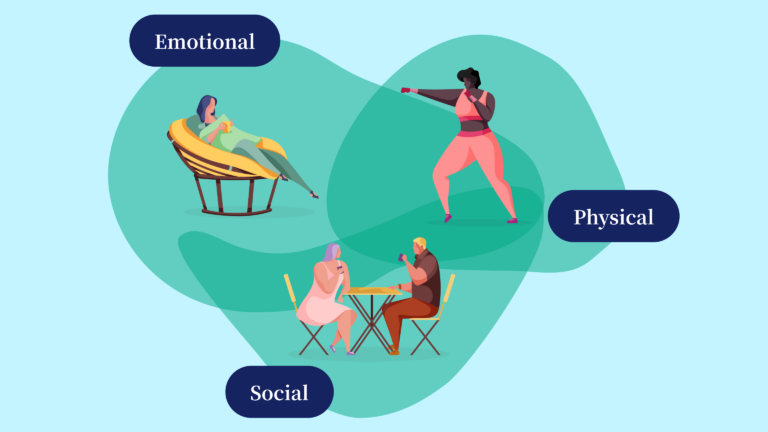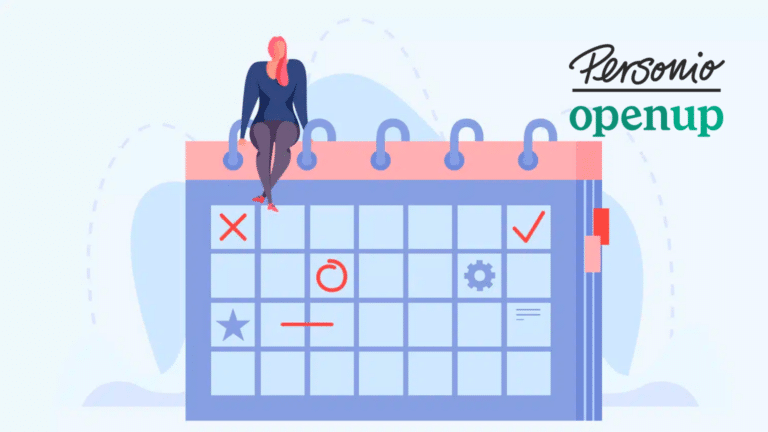Ace & Tate recognizes the importance of the mental health condition of their employees. Learn more about how and why Ace & Tate uses OpenUp to better the mental health of their employees.
The corona virus crisis has also affected Ace & Tate, according to Head of People Leonoor. The head office and the shops were closed for a while, leading to more online initiatives and a solution-oriented approach to the challenges ahead. But it was not always possible for everyone to maintain a positive attitude and approach – many people found the situation stressful and worrying. We all react differently to change – what are the reasons for this?
It is usually down to a number of different factors, explains OpenUp psychologist Shannon. “First of all, our personality plays a key role. Some of us are open to new experiences and find them energizing. Others prefer to avoid change because they find it a drain on their energy resources; these people tend to seek out clarity, guidance and structure. Our personal circumstances also play a role in how we react to change.
If your personal situation is particularly demanding, it is likely that you will have less capacity for change and challenge. “Your capacity is a bit like a backpack you carry with you. If that backpack is reasonably light, you will be able to handle picking up some extra weight. But if your backpack is already full of burdens and worries, you won’t be able to handle much more.”
Your capacity depends on a number of factors. Now that we are all spending more time working at home, you may be missing personal contact with your colleagues or struggling to balance your work life and your private life. You may also find that your daily routine has been disrupted. The most powerful resource for dealing with stress and setbacks is resilience. The OpenUp psychologists can help you to develop your resilience so that, when changes do take place, you can come back stronger than before.
Gaining insight into reasons
Experiencing a new situation can be an opportunity to consider how you react and why you react this way. “If you find that you are resistant to new situations, that is completely understandable. But your resistance can be a real drain on your energy reserves. It can sometimes feel as though you are swimming against the current. What’s more, you will not achieve much by resisting.” However hard we resist, we can’t do anything to change the situation. Once you acknowledge this you will find that you are able to accept it, says Shannon. “What would that feel like? And could it actually be beneficial for you?”
We all tend to dwell on the past. “But change can bring about lots of positives if we learn to look at it in a different way. You might not have chosen to work from home, but there are lots of advantages – less time spent commuting, better focus and a quieter working environment, for example.” Change enables you to keep learning and developing. As the saying goes, “Your comfort zone is a beautiful place, but nothing grows there”. As long as you are open to it, change brings new opportunities.
Increasing your resilience
Stay flexible, look on the bright side and keep it simple – this mentality fits perfectly with the Ace & Tate values and way of working. “As a business, we are constantly changing. We are a dynamic environment”, says Leonoor. “Adaptations in our business structure, systems and processes are part of the whole process. If this is something you find difficult, it might help you to address some of these issues.”
If you are good at handling change and setbacks, your resilience and mental robustness will also increase, says Shannon. This will help to prevent stress and burn-out. “The OpenUp psychologists can help you to gain insight into your emotions and increase your resilience, so that when change does take place, it is not a cause of stress or a drain on your energy reserves.”
Would you like to know why you experience these problems when changes take place? Try to ask yourself what you need to break out of this pattern, suggests Shannon. “What is lacking for you at that moment? Perhaps you are missing contact with your colleagues or you are not feeling adequately challenged. If you can put your finger on what it is, then you can do something about it. Take control of the situation and try – with the help of a psychologist if necessary – to assess how you can change the situation for yourself in a positive way.”
Recognising the signals
Despite having a positive attitude to change, you may still feel tense at times of change, says Shannon. “Tension is healthy, it keeps you alert. But if the tension becomes too great, or if it lasts for too long, it can have negative consequences.”
Your body may give you signals such as tiredness, irritation or reduced concentration. “You may also suffer from physical symptoms such as a stomach ache or muscle pain. This is your body’s way of trying to tell you something. If you don’t listen, your symptoms may get worse.”
Talk about it
Even if there is no obvious solution, it can help to simply talk about your stress with your partner, friends, colleagues or family. As well as seeking social support, distraction can also be a great help. “Dwelling on a problem relentlessly is exhausting. Try to find a balance between talking about your problem and distracting yourself. Discuss your problem and then go out and do something fun and energizing. This way, you are addressing your problem as well as giving yourself a chance to relax for a while. This is a more sustainable approach.”
It is important to remember that resilience is not about avoiding setbacks; it is about how you handle them. “Getting up again after the fall, recovering and – despite all the odds – making the most of the situation. Standing still for a moment is a natural human reaction and something we all need to do from time to time. But the most important question is “how will you move on?”





